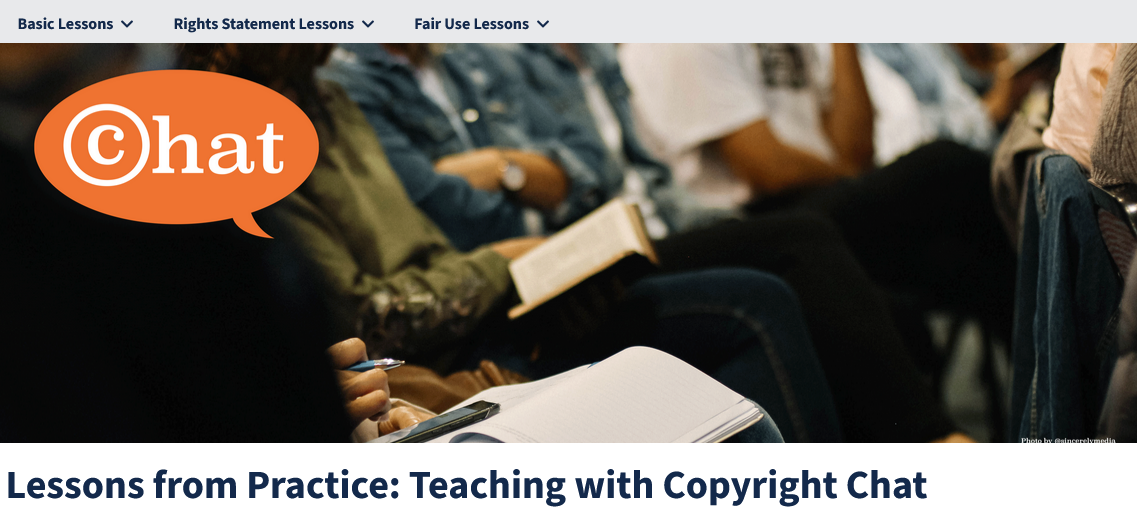This is the latest post in a series announcing resources created for the Scholarly Communication Notebook, or SCN. The SCN is a hub of open teaching and learning content on scholcomm topics that is both a complement to an open book-level introduction to scholarly communication librarianship and a disciplinary and course community for inclusively sharing models and practices. IMLS funded the SCN in 2019, permitting us to pay creators for their labor while building a solid initial collection. These works are the result of one of three calls for proposals (our first CFP was issued in fall 2020; the second in late spring ‘21, and the third in late fall 2021).
Today we’re excited to share “Peer Review: A Critical Primer and Practical Course” (available in the SCN OER Commons Hub and via Pressbooks), contributed by Emily Ford. Despite its obvious importance to scholarly publishing, peer review is often opaque and frequently poorly understood as a practice. Emily has created this open course to explain and interrogate it. Here she is to introduce Peer Review: A Critical Primer and Practical Course:
Peer Review: A Critical Primer and Practical Course is a self-paced, open access training in peer review. In eight modules it asks readers to engage in a variety of activities to learn the who, what, why, and how of peer review. It is geared toward library professionals, library school students, or other academic professionals who must understand and/or engage with the peer-review process. The modules are:
- What is Peer Review?
- Opportunities and Challenges in Peer Review
- Bias and Power Structures in Peer Review
- Critically Examining Established Peer-Review Practices
- Innovations in Peer Review
- Librarians and Peer Review
- Developing Peer Review Norms, Guidelines, and Expectations for LIS (or your discipline)
- Developing Your Peer Review Practice
My interest in peer-review processes began with my career in librarianship. At the time I was a co-founder of In the Library with the Lead Pipe, where we “invented” an open peer-review process. From then on my research, scholarship, and advocacy has been around building capacity in our profession to engage in peer review, to understand it, to improve it, and to implement open peer-review processes in more of our publications in LIS.
One of the most notable things to me about peer review and librarianship was that we have had no basis upon which to be practicing it. How had we been trained to engage in it? Instruction librarians must often teach students to identify peer-reviewed articles for their research assignments, library workers at reference desks show students how to use limiters and filters to find peer-reviewed content, and instructors continue to try and elevate peer-reviewed scholarship as the most authoritative and the best research. Yet the first time we receive a review request many of us are baffled by the task – we ask colleagues what we are supposed to do. We try to make sense of the minimal instructions sent us by an automated journal management system, we try to have helpful comments, and we fit this work in amongst our busy work and personal lives. We simply learn it by doing.
On top of these issues, and like so many other systems in higher education, peer-review processes and systems can reinforce white supremacy and other forms of oppression. As such it is pertinent that any peer-review practice be mindfully executed to eliminate as much of this oppression as we can. This course attempts to offer folks the opportunity to learn about peer review and to critically question it so that we may, over time, develop peer-review practices, norms, guidelines, and systems for LIS that dismantle its role in systemic oppression. My sincere hope is that the materials offered in this course are used, reused, modified, and become part of a larger conversation and effort to educate scholarly communication and other librarians in peer-review practices.
About the Author
Emily Ford is Associate Professor and Urban & Public Affairs Librarian at Portland State University. Her research uses narrative inquiry methods to understand peer review and she is an advocate for open peer review. In 2021, her book Stories of Open: Opening Peer Review through Narrative Inquiry was published by ACRL Press. In her spare time she is the proud human guardian of two cats and three fancy rats, volunteers at a local no-kill cat shelter, and runs tree-lined trails through forests near her home.

